
At EcoPetEssentials, we love sharing tips and tricks to help your fur baby grow and be healthy. Today, we’re diving into one of the most popular and highly sought-after dog breeds in the world: the German Shepherd. Whether you’ve got a German Shepherd pup at home or you’re thinking about adding one to your family, this blog is for you. When you care for your German Shepherd the right way, you’re building a bond that lasts a lifetime. Therefore, keep on reading this info-packed blog to help you understand these incredible dogs better.
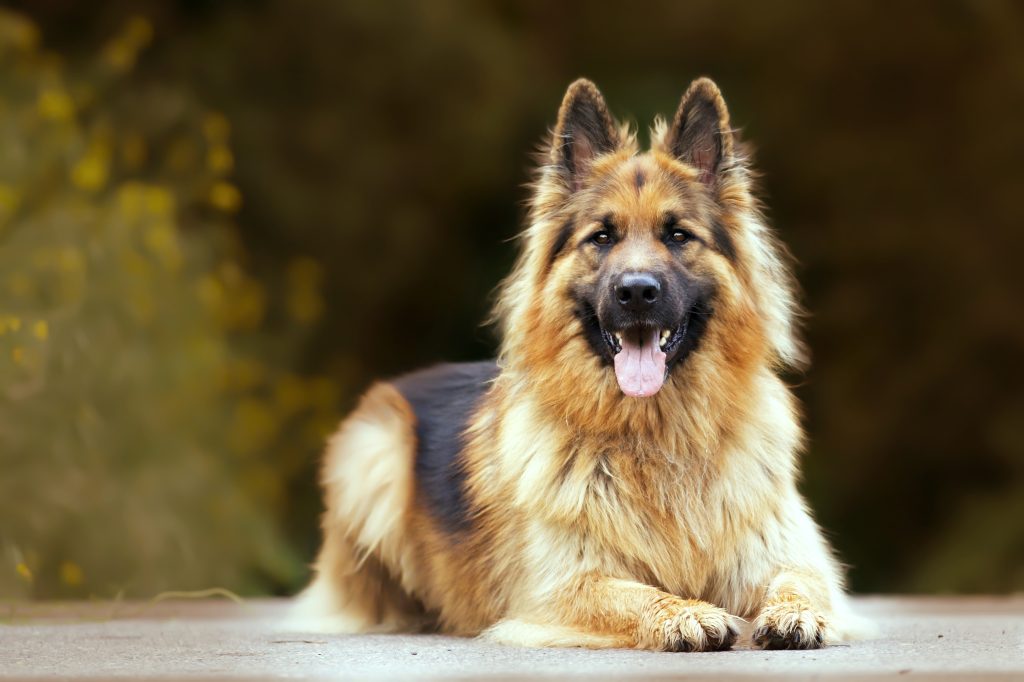
The German Shepherd dog (also sometimes spelled German Shepard or German Shephard) is big, brave, and very smart. These dogs are known for their work in the police and military, but they’re also amazing family pets. With their tall frame and alert eyes, a German Shepherd looks like it’s always ready for action. This breed usually weighs between 50 to 90 pounds and tends to stand around 22 to 26 inches tall. Some breeds, such as the King Shepherd German Shepherd, are even bigger! You might also see a black long haired German Shepherd, which is just as stunning and loving.
If you’re falling for those adorable shepherd puppy pictures, just remember: they’re cute, but they’re also a handful. German Shepherds are full of energy. Therefore, you will have to get them daily exercise, training, and lots of love. It’s super important to start socializing your German Shepherd puppy early. That means getting them used to different people, pets, and places. This helps them grow into calm and confident dogs.
German Shepherds tend to have a double coat, which means they have a soft layer underneath and a rougher outer coat. They shed all year long and even more in spring and fall. Therefore, you will have to keep brushes around the house. During peak shed season, it’s like a fur tornado in your house! We recommend regular brushing (a few times a week) and the occasional bath to keep their coat healthy and your furniture clean.
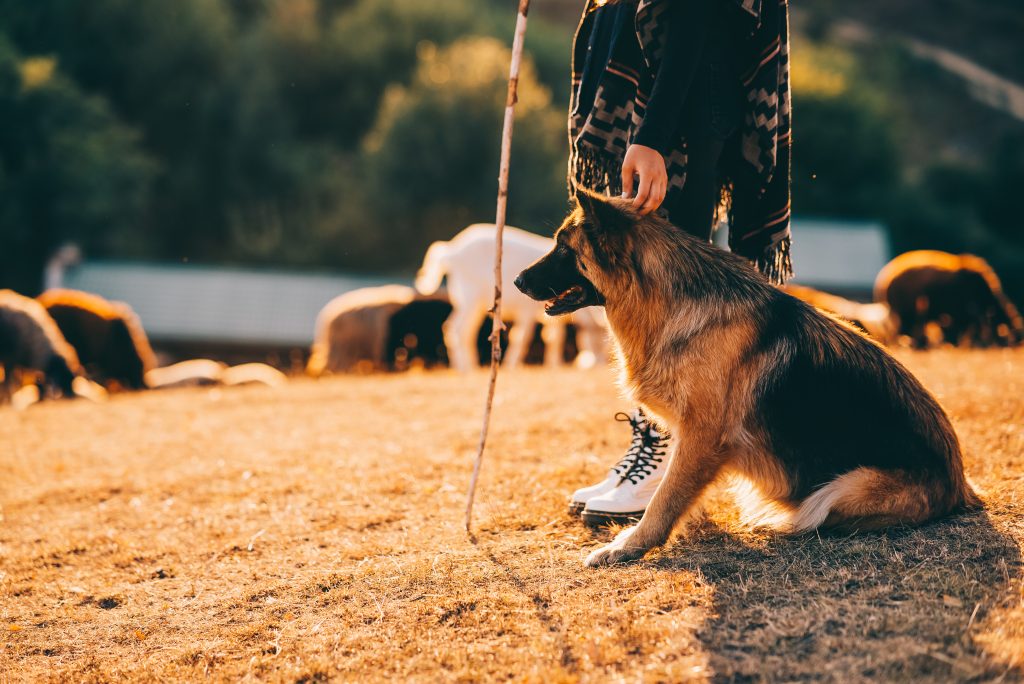
The German Shepherd lifespan is usually between 7 to 10 years. While that might not seem like a very long time to you, these dogs fill their years with loyalty and fun. You know what they say, “One dog year equals seven human years.” However, just like any other dog breed, they can have health problems. Here are a few things you should know about beforehand:
German Shepherd health problems can sound scary. However, you’ll be glad to know that with regular vet care, good food, and love, your fur baby will have a happy and playful life.
You might be wondering, “How much does a German Shepherd weigh and how much do they eat?” Since they’re large dogs, they eat a bit more than small breeds. Puppies should eat at least 3 to 4 times a day, while adults usually eat twice a day. You can choose a dog food that’s made for large breeds and matches your dog’s age. When shopping for dog food, you have to look for the AAFCO label to make sure it meets all nutritional needs. You can start off by feeding your dog smaller meals. It is a good idea to use a slow-feeder bowl as it can help prevent bloating.
You should definitely avoid feeding your dog human food. It can upset their tummy and lead to problems like obesity or pancreatitis.
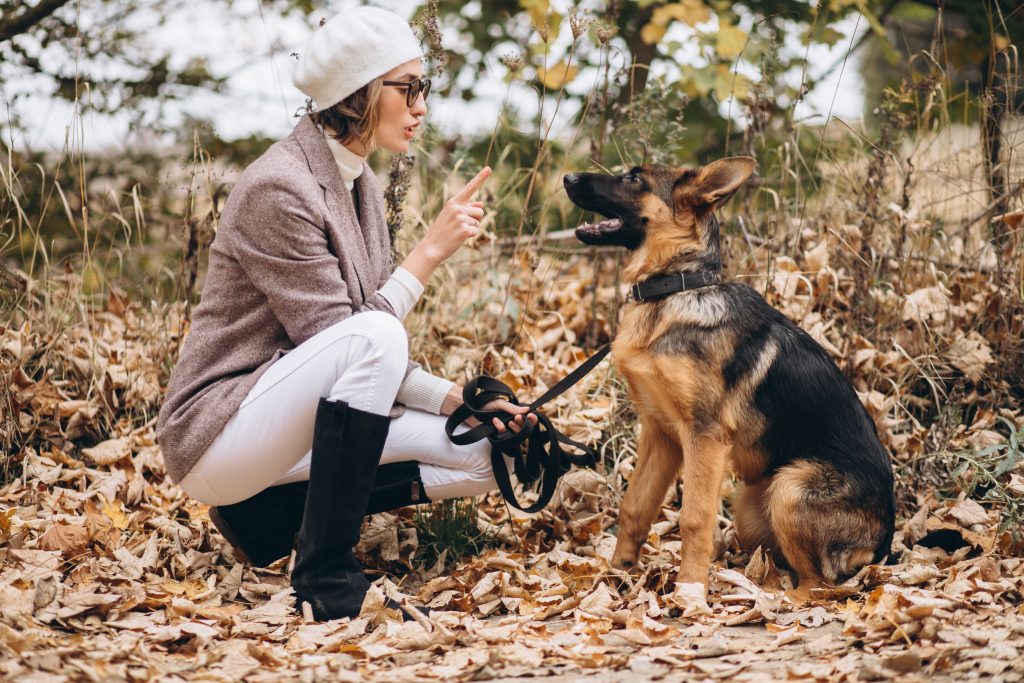
German Shepherds are super smart. They’re fast learners and love having jobs to do. This makes training fun, but also necessary! Without regular training and mental stimulation, German Shepherd problems like chewing, barking, or digging can happen. You have to use positive reinforcement (like treats and toys) and start training early. Obedience classes and socialization with other dogs are great ways to help your pup learn good manners.
Fun fact: These dogs shine in activities like agility, tracking, dock diving, and nose work. You have to keep their brains busy and their tails wagging!
Besides brushing your German Shepherd, you’ll need to care for their ears, eyes, nails, and teeth.
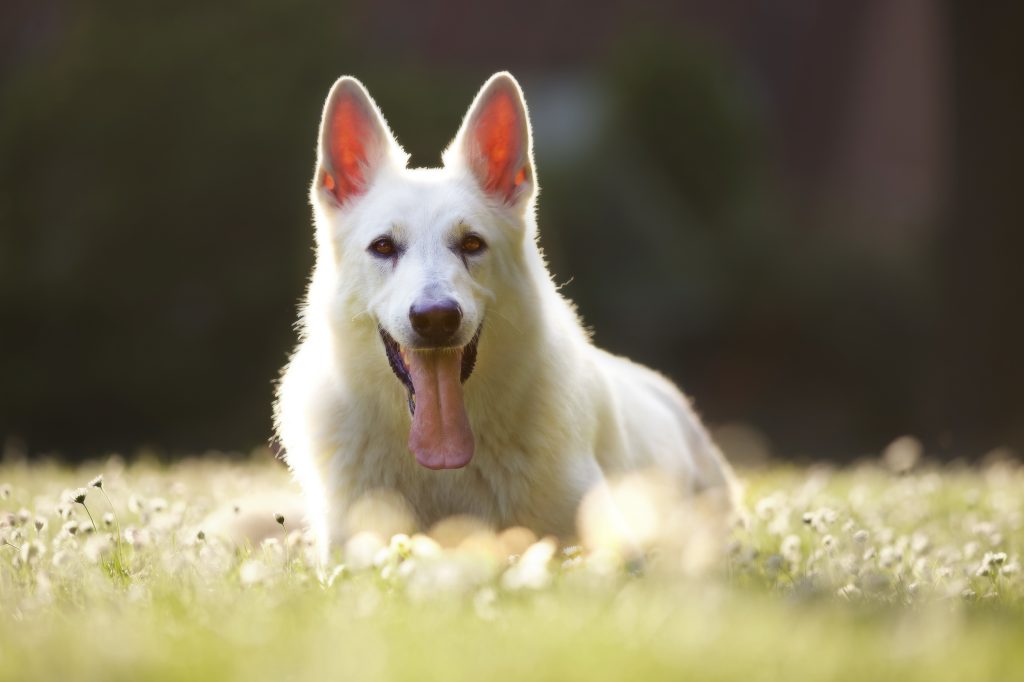
It’s fun to track your pup’s growth. You can use a German Shepherd age chart to see how much they should weigh at each stage. Your vet can also help make sure your dog is on the right track.
Here’s a quick peek at average weights:
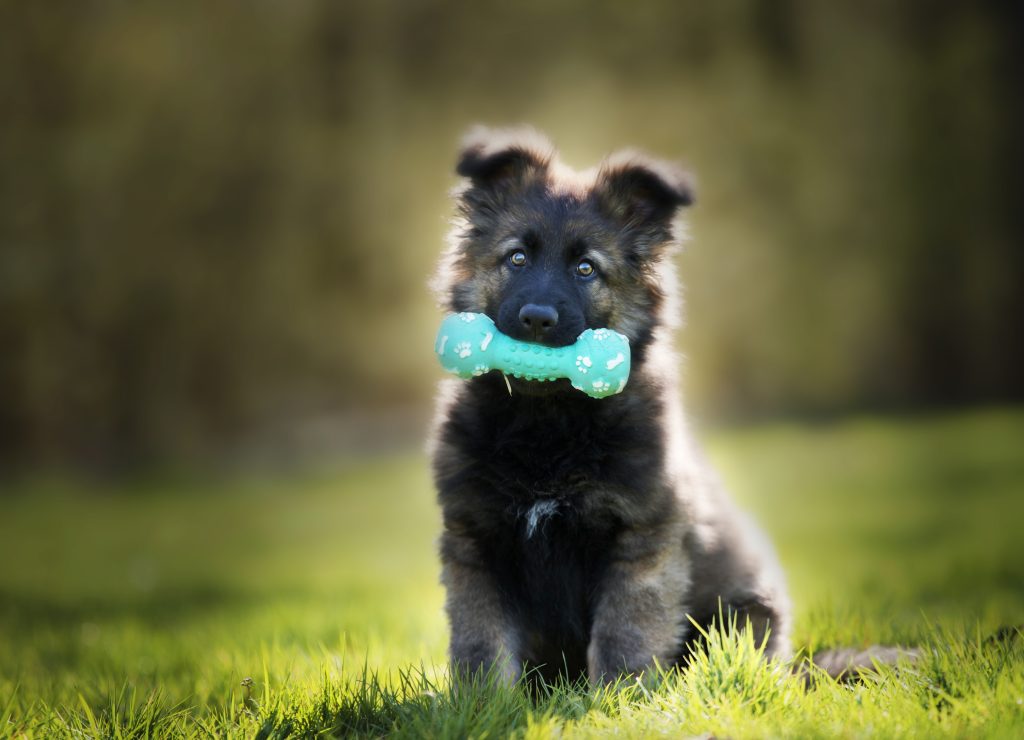
We can say from experience that bringing home a German Shepherd mixture, a full-blooded pup, or even a king Shepherd German Shepherd is a big responsibility. These dogs are loyal and loving but need time, training, and energy. If you’re active, ready to train, and excited about dog hair everywhere (seriously, everywhere), a German Shepherd might be the perfect match. And remember, you can always check out EcoPetEssentials for more information. Stay tuned for more tail-wagging fun, helpful tips, and behavior training tricks for your furry friend!